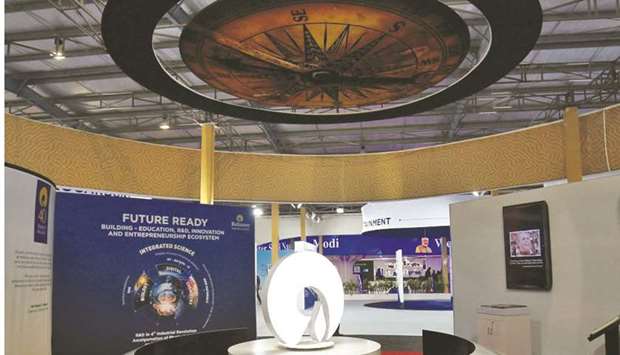Indian conglomerate Reliance Industries yesterday reported a 8.8% rise in its third quarter consolidated net profit, boosted by growth in its core business of petrochemicals and oil refining.
The Mumbai-based company owned by India’s richest man Mukesh Ambani said its consolidated net profit for the three months through December rose to Rs102.50bn ($1.44bn) from Rs94.20bn reported a year earlier, even as its refining margins fell.
“In an oil price environment that witnessed heightened volatility through the quarter, RIL has delivered strong quarterly results on a consolidated basis,” Reliance chief Ambani said in a statement.
Reliance said it maintained robust growth in its retail and telecom business which helped the company achieve overall profitability despite global fluctuations in crude oil prices.
Revenues for the period were up 56.4% to Rs1.60tn.
Reliance said in a statement that its gross refining margin, the profit earned from each barrel of crude, was down to $8.8 in the December quarter from $11.6 in the previous year.
Refining margins are a key profitability gauge for Reliance, one of the world’s largest refiners.
The firm has business interests in refining, retail, telecommunications and petrochemicals.
Meanwhile, RIL’s telecom venture Jio reported robust growth by increasing its subscriber base by 27.9mn for the quarter. Jio also reported a 65% rise in its profits to Rs8.31bn, adding to the quarterly results.
Ambani launched Reliance Jio with much fanfare in September 2016 offering free services up to March 2017, sparking intense price wars which saw consolidation in the Indian telecom sector.
Morgan Stanley
Morgan Stanley missed analysts’ estimates for quarterly profit yesterday after spikes in volatility in the end of the fourth quarter hurt trading, sending its shares down 5%. The bank was hit by a combination of losses in fixed-income trading and declines in its huge wealth management unit.
In the latest quarter its wealth management business revenue fell 6%, hurt by lower client assets.
“2018 was a great year that finished on a disappointing note” chief executive officer James Gorman said on a post earnings call with analysts. “We do not believe the fourth quarter is the new normal.”
The bank’s total sales and trading net revenue fell 7% to $2.49bn, for the quarter ended December 31, led by a 30% decline in fixed income revenue.
Equity trading revenue was flat at $1.93bn.
Morgan’s trading are in contrast to that of Goldman Sachs that showed a 2% growth in its trading business, led by a 17% rise in stocks trading, which dwarfed the losses at its bond trading business.
Morgan Stanley’s M&A advisory business was a bright spot, with deal makers delivering a 41% rise in revenue.
Morgan Stanley’s net revenue fell 10% to $8.55bn, falling well short of analysts’ average expectation of $9.30bn, according to IBES data from Refinitiv.
Net income applicable to Morgan Stanley more than doubled to $1.53bn from a year ago when the bank booked a tax-related charge.
On a per share basis, it earned 80 cents per share, missing analysts estimate of 89 cents per share.
On an adjusted basis, the bank earned 73 cents per share, compared with 84 cents per share a year ago.
In the last twelve months, the stock has fallen nearly 22%, versus a 12.5% decline in the financial index and a 5.6% drop in the S&P 500 index over the same period.
Alcoa
Top US aluminium producer Alcoa Corp beat Wall Street estimates for quarterly profit on Wednesday, buoyed by strength in its alumina segment, but shares slipped after the company did not provide a closely watched profit measure for the full year.
Alcoa chief financial officer William Oplinger said on a post-earnings call that the company was eliminating “the poorly point-in-time full-year earnings before interest, tax, depreciation and amortisation outlook” given the unprecedented market volatility.
Alcoa said it expected the global aluminium deficit to extend into 2019 and estimated that its aluminium shipments would decline 500,000 to 600,000 tonnes year over year.
“Demand growth for primary aluminium in 2019 is expected to be robust, with global consumption growth in the range of 3% to 4%, driven by continued strong growth in China,” chief executive officer Roy Harvey said on the call.
The company said it expected an alumina surplus in China in 2019, driven by refinery expansions and lower-than-expected smelting production.
Strong sales of alumina to third-party smelters, which jumped 20.8% to $1.13bn, helped the company counter a fall in aluminium prices.
Pittsburgh-based Alcoa has reaped mixed benefits from President Donald Trump’s decision to impose tariffs on aluminium and steel imports into the United States.
The company has been hit by imports from its smelter in Canada.
Alcoa, which is shuttering two of its aluminum plants in Spain, said it expected an annual net income improvement of $70mn to $80mn beginning in the third quarter of 2019 from the closures.
Net income attributable to Alcoa was $43mn, or 23 cents per share, in the quarter ended December 31, compared with a loss of $196mn, or $1.06 per share, a year earlier.
Revenue rose 5.4% to $3.34bn.

On an adjusted basis, the company earned 66 cents per share. Analysts on average had expected a profit of 50 cents per share, according to I/B/E/S data from Refinitiv.
